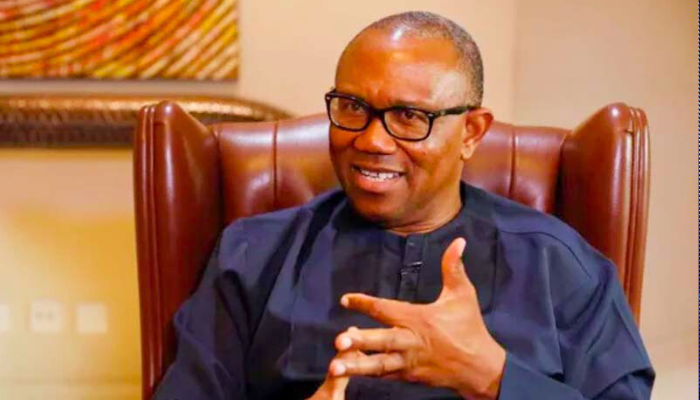By Ismaeel Aleem
The Lagos State chapter of the All Progressives Congress (APC) has accused the former Labour Party presidential candidate, Peter Obi, of suffering from “political selective amnesia” following his claim that “nobody can capture the South-East with defections.”
The APC’s retort comes amid a wave of defections from the Peoples Democratic Party (PDP) to the APC in the South-East and South-South regions.
In a statement issued on Thursday, 16 October 2025, APC Lagos spokesperson Mogaji Seye Oladejo dismissed Obi’s remarks as “long on drama but short on logic,” accusing him of lacking the moral authority to critique defections.
Oladejo branded Obi the “undisputed master defector” in Nigerian politics, citing his moves from the All Progressives Grand Alliance (APGA) to the PDP, then to the Labour Party.
“According to credible whispers within his shrinking camp, Obi is already shopping for another platform to inherit before 2027,” Oladejo claimed, suggesting the former Anambra governor’s career is built on “defection, opportunism, and expediency.”
Oladejo argued that the South-East’s alignment with the APC reflects a voluntary shift towards national integration, not a forceful “capture.”
He emphasised that the region seeks inclusion, infrastructure, and investment, rejecting Obi’s “emotional blackmail” and “politics of victimhood.”
“If there were a trophy for political cross-carpeting, Obi would be its unchallenged winner,” Oladejo quipped, accusing the former presidential candidate of conveniently forgetting his own history of switching parties.
The APC spokesperson further asserted that power is earned through structure, consistency, and bridge-building across Nigeria qualities he claimed the former Anambra governor lacks.
“His politics of isolation and sanctimony may have once excited social media, but Nigeria demands substance, not sympathy,” Oladejo stated.
He argued that the South-East is not the former Labour Party’s presidential candidate’s personal fiefdom and that divisive tactics have no place under President Bola Tinubu’s Renewed Hope Agenda, which promotes unity and progress.
Oladejo concluded by describing Obi as “politically stranded,” abandoned by allies and weakened by reality.
“The earlier he faces the truth, the better for what remains of his political relevance,” he warned, framing Obi’s criticism as a desperate bid to stay relevant in a rapidly evolving political landscape.



